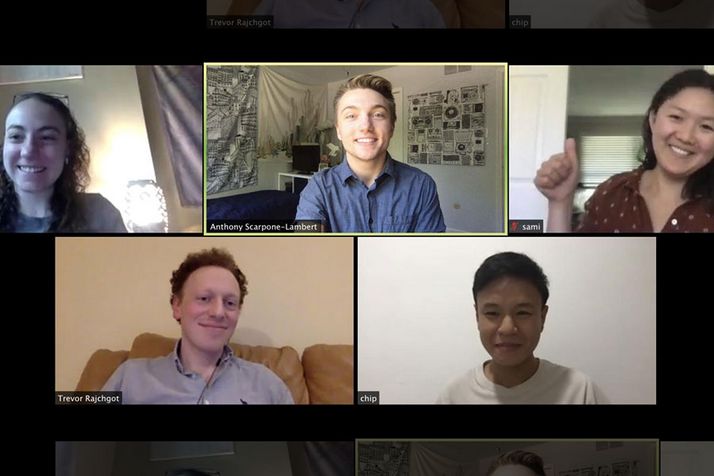Just 48 hours to design an app
- Salle de presse
06/16/2020
- Jeff Heinrich
With colleagues in the U.S. and Singapore, an UdeM PhD student wins a prize at MIT’s COVID-19 Challenge with the concept of a new mobile application to train nursing home staff.
Creativity and speed are hallmarks of research these days into the COVID-19 pandemic, and Université de Montréal pharmacology PhD student Trevor Rajchgot has proven he can excel in both, without leaving home.
Quickly assembling an online team of four other participants from the U.S. and Singapore two weeks ago, the 27-year-old Montrealer took just 48 hours to come up the concept of a training app to help front-line health-care workers do their job better.
It’s called CareOwl, and the project won Rajchgot’s team $500 and a prize in their category – solutions for nursing homes and assisted living facilities – at the MIT COVID-19 Challenge, a hackathon held from May 29 to 31 by the Massachusetts Institute of Technology.
“Frontline health workers are facing a lack of COVID-specific training, support, and access to up-to-date best practices and standards of care,” said Rajchgot, whose academic path took him from Lower Canada College to McGill University, Georgetown University and UdeM.
“To help them address those problems, CareOwl is a web and mobile platform they can use to access COVID-19 educational and training resources that includes peer-to-peer support, fun and accessible multimedia training modules, and access to expert-driven advice.
“The goal is simple: to make standards of care more uniform, improve health outcomes, lower COVID-19 infection rates, and ensure the wellness of the caregivers themselves. All that, from an app.”
More than 1,800 participants
The MIT hackathon attracted over 1,800 participants from some 89 countries, including Canada.
Preparing for it, Rajchgot went on Slack.com to assemble his team: two PhD students in nursing and biology at the University of Pennsylvania, one data scientist with a PhD and MBA in St. Louis, Missouri, and a user experience and interface (UX/UI) designer in Singapore.
Now in development, CareOwl would be available to orderlies, nursing assistants and nurses who work with the elderly in hospitals and group homes, in addition to long-term care and military veterans’ facilities.
In Quebec, the number of deaths from COVID-19 has topped 5,000 — more than half the Canadian total — with the vast majority occurring in long-term-care facilities, where staff are often poorly trained, overworked and underpaid.
“A lot of these people have a difficult time finding full-time work, so they’re working in multiple facilities, without proper training,” said Rajchgot. “They’re flying blind, unaware of the best practices to minimize the risk of spreading coronavirus.
“This mismatch between individuals and proper training procedures is something we identified in developing our app, so we wanted to come up with a simple and rapidly deployable solution.”
Proposals from the other 18 teams that completed the hackathon in the nursing-homes category included things like “care robots” and automated body-temperature scans. Four, including Rajchgot’s team, were judged the best of the lot.
Details about CareOwl and how to use it are still under wraps; Rajchgot and his team are now busy building it out to eventually test it in a pilot project with an academic or private partner here or in the U.S.
“For now, we have a visual prototype and architecture,” the PhD candidate said. “It’s going to be very easy to use, visually appealing and inviting for care workers to try it out and use, once it’s ready.”
Media contact
-
Jeff Heinrich
Université de Montréal
Tel: 514 343-7593














